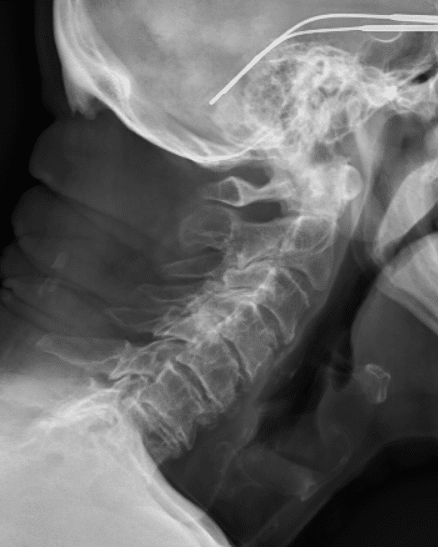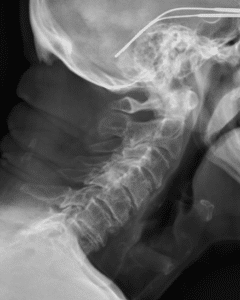How Long Do I Have To Wear My Sling after Shoulder Surgery?
How Long Do I Have To Wear My Sling after Shoulder Surgery?
If you are reading this, you have probably had shoulder pain for a long time. Perhaps you have tried many treatments to help this shoulder pain, including changing your activities, physical therapy, medicines and anti-inflammatories, or even injections. It is also possible that you had an MRI or ultrasound that showed a rotator cuff tear, and you may be considering surgery as an option to treat your shoulder pain for good.
A shoulder scope or “arthroscopy” procedure, like that performed by shoulder specialist Dr. Johnny T. Nelson, MD, is a time-tested procedure with excellent outcomes. After a period of healing, a very high percentage of patients are happy with their shoulder for the rest of their lives. However, there is a period of healing after the procedure where resting the arm and shoulder is very important.
And this is where a shoulder sling is very helpful.
Most patients who have shoulder surgery want to know how long they will have to wear their sling. This is an excellent question, since if you are wearing a sling, it isn’t easy to use the arm. If you are not able to use one arm, some activities such as dressing, going to the bathroom, driving a car, or working can be difficult.
In brief, the answer to this question depends on the type of surgery that is performed.
There are some shoulder scope procedures that are very simple. These can include “cleanout” procedures or procedures where the only problem is the biceps tendon or “labrum” around the socket. After these procedures, Dr. Johnny T. Nelson, MD, usually allows his patients to begin to use their operated arm for light activities like eating and drinking whenever they are comfortable doing so. This is because the things that were repaired or cleaned out in the shoulder do not need much protection.
Other shoulder procedures are more complex. Rotator cuff repair, for example, is much more complex and requires more healing time. If you have a small tear, Dr. Nelson may allow you to return to gentle activities with the operated arm 4 weeks after the procedure. For very large tears or “redo” operations, Dr. Nelson may request that you avoid using the arm for up to 6 weeks!
For this reason, it is important to discuss your shoulder procedure with your shoulder surgeon. Raleigh, North Carolina, shoulder specialist Johnny T. Nelson, MD, spends time discussing the healing process with every patient who decides to undergo a shoulder procedure. How long he would have to wear your sling after shoulder surgery depends on the problem that you have and what type of procedure needs to be performed.
Do you have shoulder pain? Are you worried that you have a rotator cuff tear? Call 919-872-5296 today to schedule a visit with Dr. Johnny T. Nelson, MD, at Raleigh, North Carolina Shoulder Specialist!
How Long Do I Have To Wear My Sling after Shoulder Surgery? Read More »





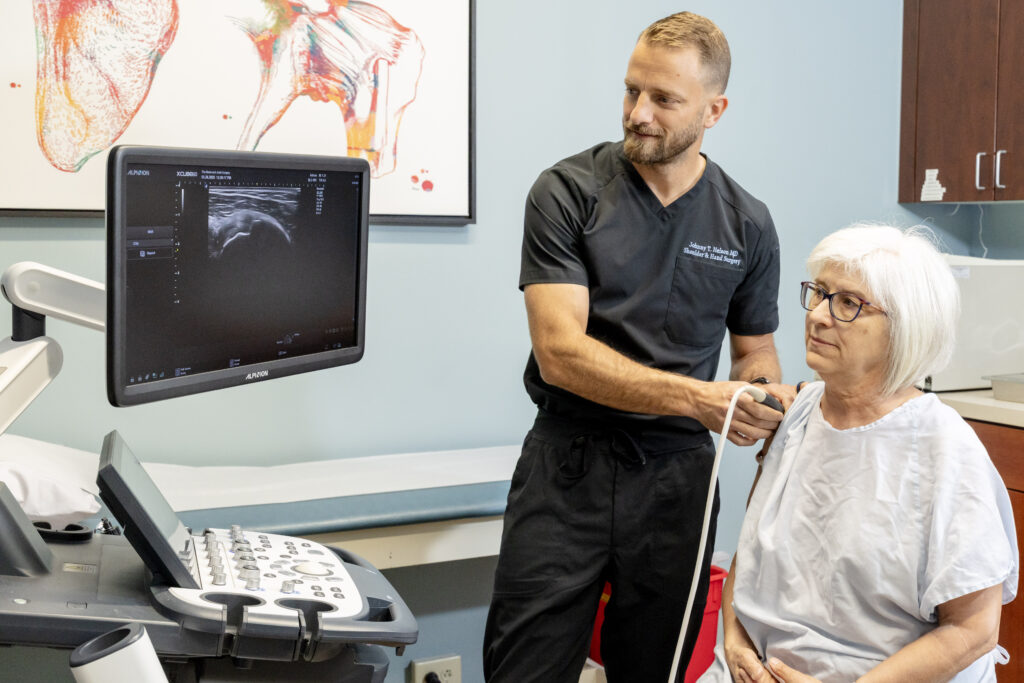

 How long do I have to wear a sling after rotator cuff repair?
How long do I have to wear a sling after rotator cuff repair?


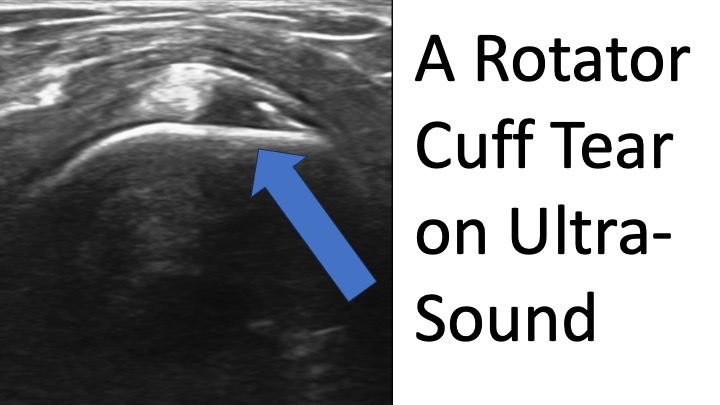
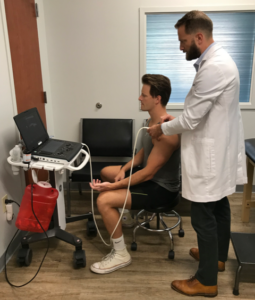 How do I Know If I Have a
How do I Know If I Have a 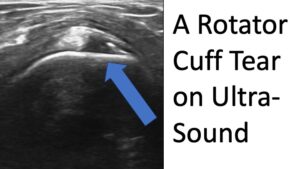 the bones, x-rays do not show us the health of the rotator cuff. Sometimes a specialist can get information on the health of the rotator cuff with a physical exam, but still rotator cuff tears can be missed. In-office ultrasound helps shoulder specialist such as Dr. Johnny T. Nelson see rotator cuff tears quickly and easily. Furthermore, ultrasound gives you and Dr. Nelson peace of mind that you do not have a rotator cuff tear, and performing simple nonsurgical treatment is probably the best way to go.
the bones, x-rays do not show us the health of the rotator cuff. Sometimes a specialist can get information on the health of the rotator cuff with a physical exam, but still rotator cuff tears can be missed. In-office ultrasound helps shoulder specialist such as Dr. Johnny T. Nelson see rotator cuff tears quickly and easily. Furthermore, ultrasound gives you and Dr. Nelson peace of mind that you do not have a rotator cuff tear, and performing simple nonsurgical treatment is probably the best way to go.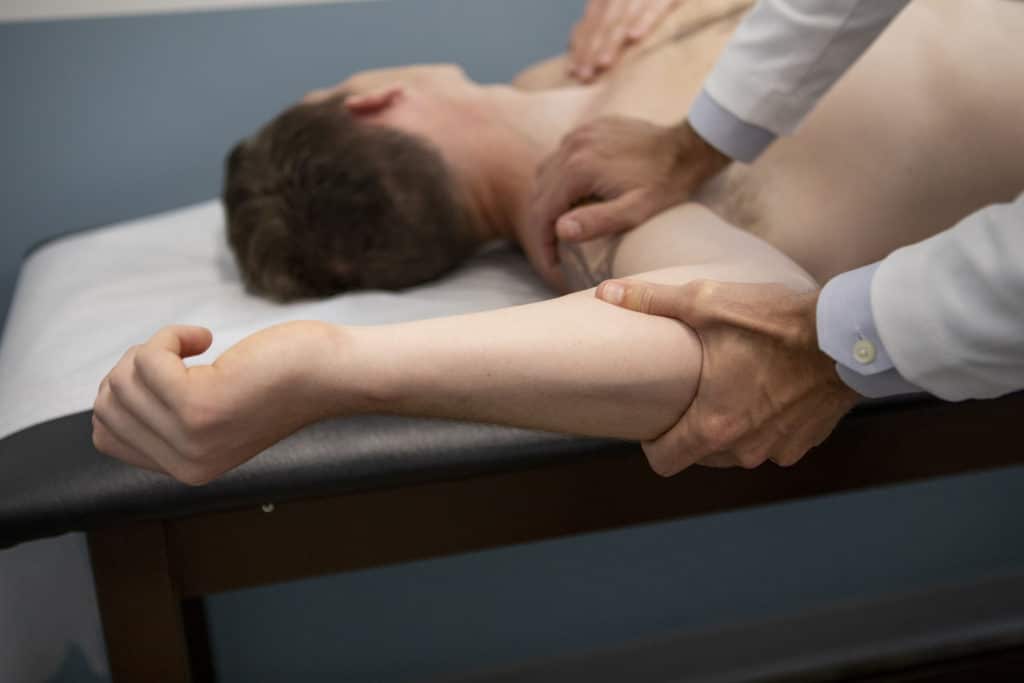
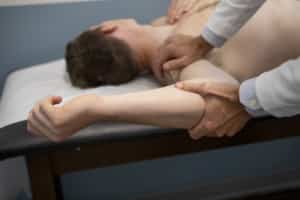 I injured my shoulder!
I injured my shoulder!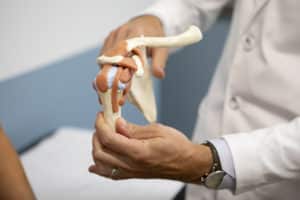 le to focus on more basic exercises to rebuild shoulder health, such as strengthening the rotator cuff muscles, stretching out the shoulder blades, and working on posture and core strengthening. This also allows for time for a proper workup to rule out more serious causes of pain (for example, rotator cuff tears).
le to focus on more basic exercises to rebuild shoulder health, such as strengthening the rotator cuff muscles, stretching out the shoulder blades, and working on posture and core strengthening. This also allows for time for a proper workup to rule out more serious causes of pain (for example, rotator cuff tears).